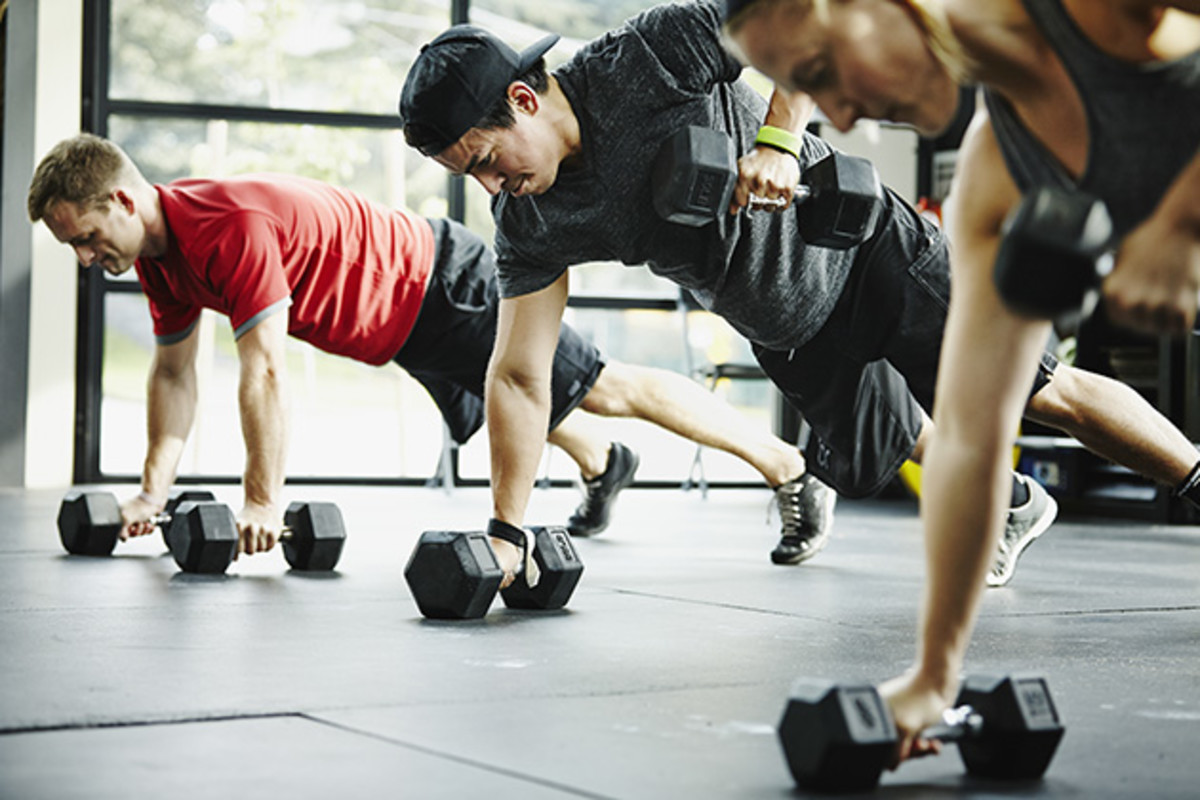Get Healthy in 2016: Finding the best fitness approach that works for you

This is the final piece in the five-part series ‘Get Healthy in 2016,’ in which SI.com in-house sports scientist Michael J. Joyner talks with team doctors, trainers and experts from the world of sports to help readers learn how they can improve their lives by eating, training and living better. For the first four installments visit si.com/edge.
When you see an article headed with a question like “what’s new with exercise”, usually the piece is about some new type of workout or some new gizmo. Lots of times when you drill down you realize that not much is really new and that most things are simply being recycled over and over. Enthusiasm for circuit training, high-intensity, low-intensity, free weights, machines, and just about everything else comes and goes. The same is true for diet. I have seen three or four waves of interest in either low-fat or low-carb diets since I got interested in fitness in the 1970s.
So at some level nothing is new and maybe a better question is what is new for you? With that idea as a theme, here are a few questions and ideas to keep you going.
Get Healthy in 2016: How meditation, sleep and more can calm your mind
”
Do you prime your brain to learn? There is all sorts of evidence that exercise can improve attention, learning, memory and decision making. In the last few years a number of studies have shown that brief periods of moderate-intensity aerobic exercise can make it easier to learn a new motor skill as well. There are a couple of take homes here. The first is to do a good warm up if you are trying to learn a new athletic skill. The second is to apply this general principle to your day job and plan your most demanding intellectual tasks after your workout, or perhaps go for a brisk walk at lunch or before that big meeting or presentation.
Are you a sampler or specialist? One of the big issues in youth sports is when to specialize, and evidence is emerging that sampling early and specializing later leads to better performance over time. Younger children who do many things score higher on tests of fitness and coordination than their more specialized peers. The same almost certainly applies to adults and there is the added benefit of less monotony; plus, cross training can be a way to avoid injury or stay active if you have a minor injury. It is easy to go to the gym and grind it out on the machines, but probably a good idea to do something that targets balance, coordination and footwork. I am an advocate of jumping rope, and believe it or not there are scientific studies on the topic and a recent one ended with these words of wisdom:
“Results from the present study indicate that young soccer players should be encouraged to practice general physical activities together with sport-specific exercise during their training sessions.”

That sounds like pretty good advice for all age groups.
Take some lessons, ask for advice and keep it simple. Over the years I have talked to a number of people who have a fitness goal like breaking four hours for the marathon. I like to think I have helped them achieve their goals by giving them some simple advice about how to incorporate interval training into their regimens. Longer intervals of three to five minutes a little faster than 10k pace once or twice a week are especially effective for recreational runners.
I also get the sense that something similar is true for skill sports. I am always struck at the golf course by the number of people with a swell set of clubs but horrible swings. Would they be better off taking more lessons and learning to hit just a few clubs well? Would they improve more by mastering a few simple fundamentals versus thinking about 100 things as they swing? While I am on the topic, my main observation at most triathlons is that most people could go faster if they took some swimming lessons and improved their technique via a program like Total Immersion.
The SI Extra Newsletter Get the best of Sports Illustrated delivered right to your inbox
Subscribe
Back to the future? As the year progresses maybe we all need to keep looking backward for inspiration by having a 1960s-style simple and portable circuit training regimen we can do anywhere, scheduling a workout to help us focus mentally, sampling more versus fewer forms of exercise, and taking some lessons. I got some golf lessons for Christmas and can’t wait for the snow to melt so that I can use them.
Michael Joyner, is an expert in human performance at the Mayo Clinic, these views are his own. You can follow him on twitter @DrMJoyner
